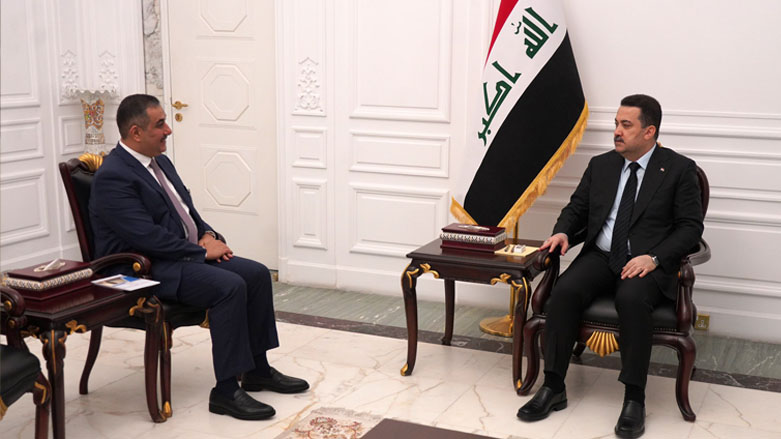Instability of foreign exchange rate in Iraq caused by ‘technical reasons, says chief central banker
The regulatory system was developed in recent months in cooperation with international financial institutions to improve the monitoring process of transactions and transfers.

ERBIL (Kurdistan 24) – The governor of the Central Bank of Iraq (CBI) on Tuesday said the recent drop in Iraqi currency value against the US dollar has been caused by “technical reasons”, including delays in transfers due to the Christmas holiday as well as the introduction a new digitalized regulatory system.
On Tuesday in Baghdad, Central Bank Governor Mustafa Al Kattab discussed the dramatic drop in the value of the Iraqi currency against the US dollar with Prime Minister Mohammad Shia’ Al-Sudani. The value of the US dollar increased to 1,585 Iraqi dinars on Tuesday morning in the Kurdistan Region currency exchange markets, marking a sharp decrease in the value of the national currency against US dollars.
Describing Iraq’s financial standing as “positive,” the governor attributed the depreciation to “technical reasons”, including delays in transfers due to the Christmas holiday and the introduction of a new electronic system to regulate and monitor the banking sector, according to a statement from Al-Sudani’s office.
The regulatory system was developed in recent months in cooperation with international financial institutions to improve the monitoring process of transactions and transfers.
“The platform requires information about customers requesting transfers, beneficiaries, and correspondent banks,” according to the CBI.
Analysts blame the “export” of US dollars from the Iraqi market to neighboring countries and sanctioned entities as one of the reasons for the high demand of US dollars.
Approximately, $50 to $80 million are exported daily to neighboring countries, Jamal Kocher, a member of the Iraqi parliament’s finance committee, told Kurdistan 24 on Monday.
Iraqi Ministry of Finance in late 2020 decided to devalue the currency in an attempt to increase government revenues amid the liquidity crisis the country was struggling with.
The decision has caused a public outcry as Iraq’s bloated public sector is paid in local currency, while the country’s economy is heavily dependent on imports traded in US dollars.